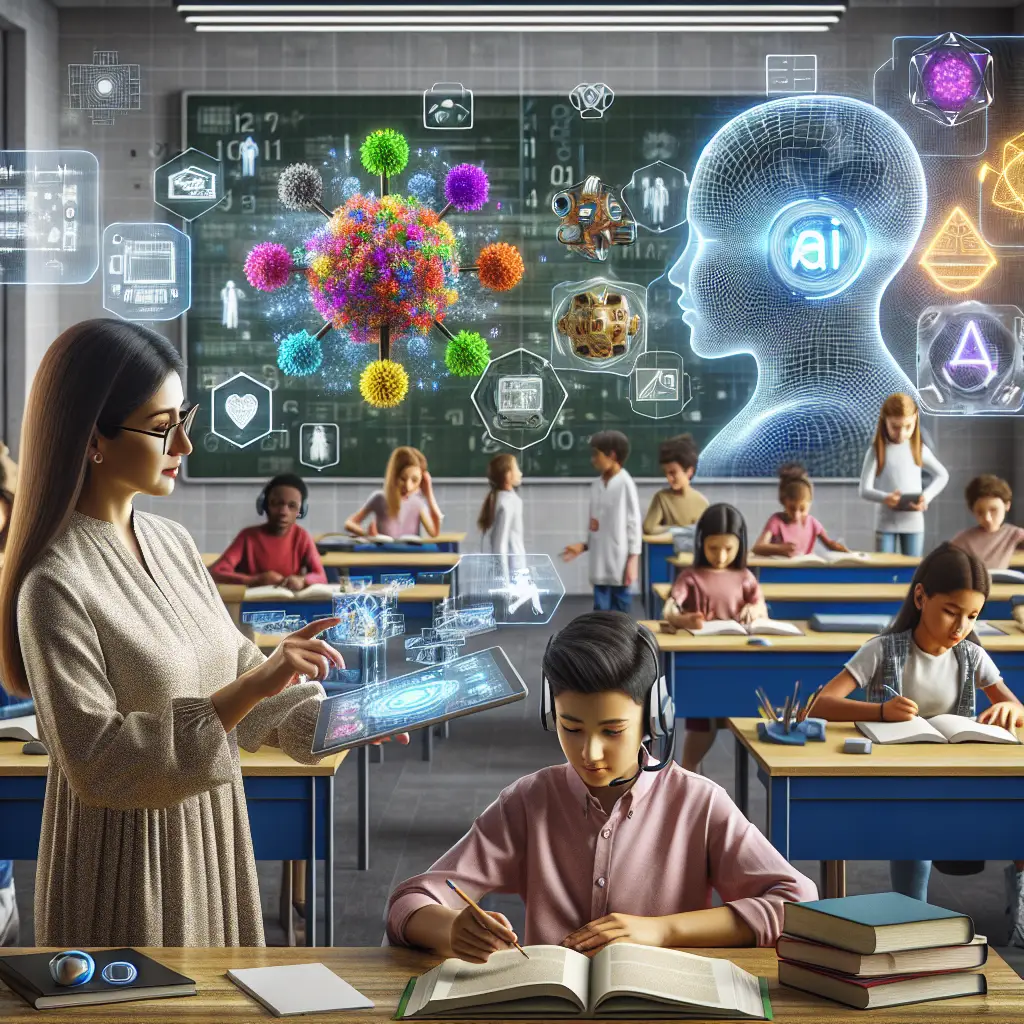Artificial Intelligence (AI) is heralding a new era of automation and advanced technologies, reducing human involvement and increasing efficiency in various sectors, including education. This technology possesses the power to reshape the education realm through personalization, administrative efficiency, early-stage career planning, and innovative methods for developing cognitive skills, among others.
The AI wave in education began with Intelligent Tutoring Systems (ITS) that provided customized instructions to learners based on their individual knowledge levels and learning styles. These systems have evolved over the years, offering assessment-based learning, personalized feedback, increased interactivity, and adaptive learning plans that align with the learner’s pace, significantly enriching the education ecosystem.
Notably, AI is simplifying administrative tasks such as paper grading, thus enabling educators to devote more time to teaching and personal interaction with students. Software systems such as PaperRater and GradeCam utilize AI algorithms to evaluate essays and assignments, offering quick and consistent results. These technologies also reduce the workload on educational institutions regarding admission processes by effectively selecting potential candidates based on set parameters.
Dubbed as the ‘virtual mentor’, AI-powered chatbots have emerged as an essential tool in career counseling and planning. Instead of requiring human intervention, these chatbots use data-driven insights to guide students on their career trajectory, recommending courses and tertiaries as per their aptitude and preferences.
Moreover, AI has shown potential in enhancing cognitive learning by introducing computer-based cognition games. These tools are designed to engage students’ mental abilities crucial in critical thinking, problem-solving and decision-making, thus striving to foster an active learning environment.
Artificial Intelligence (AI) is clearly shaping a promising future for education. However, it is not without its fair share of challenges and considerations as we chart the course.
Privacy and Data Protection: With AI systems accumulating and analyzing vast amounts of student data, the question of privacy and data protection comes to the fore. Regulations such as the EU’s General Data Protection Regulation (GDPR) have set rules for data protection, but enforcement remains a concern. Stringent data collection and management measures need to be implemented across institutions leveraging AI.
Bias in AI: The risk of biased AI systems also poses a significant challenge. It is essential to ensure that AI systems are built without any inherent imperfections or biases to ensure fair and inclusive education.
Technical Infrastructure: The successful deployment of AI in education largely depends on having robust technical infrastructure and digital literacy among educators and administrators. Developing countries may face hurdles due to insufficient resources, thereby creating a digital divide.
Workforce Readiness: The integration of AI in education demands the retraining of educators to use AI tools effectively and requires reorientation of students for an AI-driven environment. Therefore, preparations for an AI-enabled education sector must start by readying the workforce.
Looking ahead, AI is positioned to drive significant changes in education. The future may see a more pronounced use of AI in personalized learning. AI systems would analyze students’ interests, strengths, and weaknesses and deliver a customized curriculum designed just for them. Potential applications could extend to special needs education, where AI could be instrumental in crafting personalized learning methods and tools.
AI will enable more equitable opportunities for remote learning. The recent pandemic-induced shift towards online learning has provided a glimpse into the potential of AI in expanding educational accessibility. AI-powered platforms could bridge the gap between teachers and students in remote areas, revolutionizing the concept of geographical boundaries in education.
Moreover, AI could facilitate experiential learning by integrating with augmented reality (AR) and virtual reality (VR) technologies. Students would be able to practice real-life scenarios in a controlled environment, enhancing their understanding and retention of concepts.
In essence, the future of AI in education seems promising yet challenging. Careful planning, strategic implementation, consistent monitoring and responsiveness to change will be key to tapping into the transformative potential of AI in education while circumventing the challenges. While AI is not a panacea for all educational issues, it certainly presents a compelling tool to enrich the learning experience, streamline administrative tasks, provide personalized guidance, and make education more inclusive and accessible. The journey to this future has already begun, and we can anticipate witnessing revolutionary changes in education in the coming years.
Share this content:

